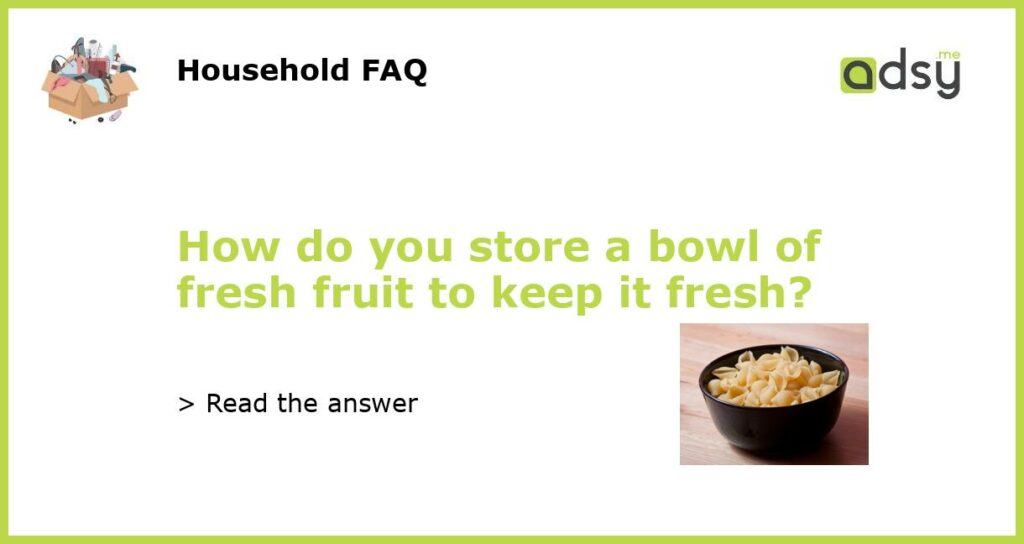Fruit Storage: How to Keep Your Bowl of Fresh Fruit Fresh
When it comes to storing a bowl of fresh fruit, there are a few key strategies you can follow to ensure your fruit stays fresh and delicious. Proper storage will help prevent your fruit from spoiling too quickly and will also preserve its flavor and nutritional value for longer. In this article, we will explore some tips and tricks for fruit storage that will keep your bowl of fresh fruit fresh and tasty.
Store in a Cool and Dry Place
One of the most important factors in storing fruit is the temperature and humidity of the storage area. Most fruits prefer cool and dry conditions, so it’s best to keep your bowl of fresh fruit in a cool spot away from direct sunlight and heat sources. Excess heat can cause fruits to ripen and spoil quickly, so aim for a storage temperature between 32°F (0°C) and 50°F (10°C) to maintain freshness.
Separate Ethylene-Producing Fruits
Some fruits, such as apples, bananas, and pears, produce a natural plant hormone called ethylene. This gas speeds up the ripening process and can cause other fruits nearby to ripen and spoil faster. To prevent this, it’s important to separate ethylene-producing fruits from other fruits in your bowl. You can either store them in a separate bowl or bag, or place a barrier between them to minimize ethylene transfer.
Keep Fruits Dry and Moisture-Free
Moisture can be a breeding ground for mold and bacteria, leading to spoiled fruit. It’s essential to keep your bowl of fresh fruit dry and moisture-free. Avoid storing wet fruits or washing them until just before consumption. Additionally, make sure to pat fruits dry if they come into contact with moisture. Using a paper towel or a clean kitchen towel can help absorb excess moisture and keep your fruits fresh for longer.
Use Proper Storage Containers
The type of container you use for fruit storage can make a big difference in maintaining freshness. Opt for containers that allow for proper airflow, such as mesh baskets or open containers. These containers will promote air circulation and prevent moisture buildup. Avoid sealing fruits in airtight containers or plastic bags unless they are already cut or sliced. Doing so can trap moisture and hasten spoilage.
Check and Remove Spoiled Fruit
Regularly inspect your bowl of fresh fruit for any signs of spoilage. If you notice any moldy or rotten fruit, remove it promptly to prevent the spread of spoilage to other fruits. Spoiled fruit can release harmful gases that speed up the ripening and spoilage of nearby fruits. By regularly checking and removing any spoiled fruit, you can help extend the freshness of the remaining fruit in your bowl.






